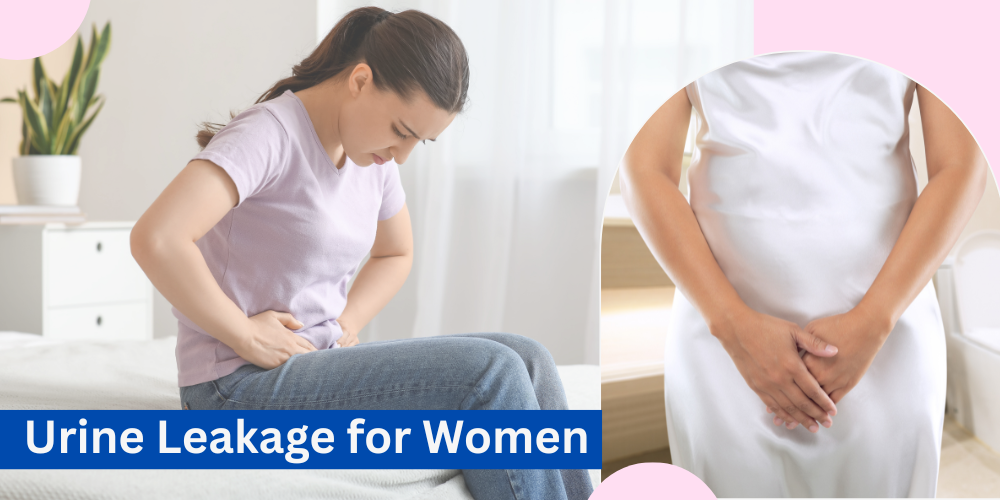Urine Leakage for Women – Causes, Stages, and Prevention
Urine leakage for women is a common but often unspoken health condition that affects millions across the globe, yet many hesitate to talk about it. Many women experience it in silence, thinking it is a part of aging or something to be embarrassed about. However, with proper awareness, precautions, and preventive measures, urine leakage for women can be effectively managed and even prevented in many cases.
Urine leakage for women is known medically as urinary incontinence, this condition is the involuntary loss of urine due to weak bladder control. Realcare understands the importance of dignity and comfort, which is why we provide supportive hygiene solutions for women dealing with this condition.
What is Urine Leakage for Women?
Urine leakage for women refers to the uncontrolled passing of urine during activities like sneezing, laughing, exercising, or even at rest. It is not only a physical issue but can also affect a woman’s self-esteem and social life if not addressed in time. In more severe cases, it can occur frequently, affecting daily life and confidence.
At What Age Does Urine Leakage Start for Women?
Urine leakage does not happen overnight. Though urine leakage for women is most common in middle-aged and older women, it can begin as early as the late 30s or 40s due to childbirth, hormonal changes, or lifestyle factors. The chances increase after menopause(45–55 years) , when estrogen levels drop, weakening the pelvic muscles.
Early Stages of Urine Leakage for Women
Identifying the starting stage of urine leakage for women is important for timely care:
| Stage | Symptoms | Common Causes |
| Initial Stage | Leakage during coughing, sneezing, or exercise | Weak pelvic floor muscles |
| Mid Stage | Frequent urge to urinate with occasional leakage | Overactive bladder, aging |
| Advanced Stage | Continuous leakage without control | Nerve damage, chronic illness |
Causes of Urine Leakage for Women
Some common reasons behind urine leakage for women include:
- Pregnancy & Childbirth – Stress on pelvic floor muscles.
- Menopause – Hormonal changes weakening bladder support and low estrogen levels.
- Obesity – Extra weight putting pressure on the bladder.
- Medical Conditions – Diabetes, urinary tract infections, or nerve disorders.
- Lifestyle Factors – Excess caffeine, smoking, alcohol or lack of exercise.
Precautions & Positive Points about Urine Leakage for Women
Even though urine leakage for women can be challenging, it’s important to focus on precautions early the that bring comfort and confidence:
- ✅Early Detection Helps – Identifying the first signs ensures timely management.
- ✅Safe Hygiene Solutions – Realcare provides adult diapers and underpads designed for women to stay active without worry.
- ✅Confidence Can Be Restored – With the right support, women can continue living life normally.
- ✅Lifestyle Changes – Proper diet with exercise can reduce risk. Pelvic floor exercises can strengthen bladder control.
- ✅Medical Help is Effective – Treatments and lifestyle changes can greatly reduce leakage.
How to Prevent Urine Leakage for Women
Prevention is always better than cure. Here are effective ways to reduce the risk of urine leakage for women:
- Pelvic Floor Exercises (Kegels): Strengthens bladder muscles.
- Maintain Healthy Weight: Reduces pressure on the bladder.
- Limit Bladder Irritants: Reduce caffeine, alcohol, and spicy food.
- Stay Active: Regular exercise improves overall bladder control.
- Timely Toilet Visits: Emptying the bladder on schedule helps manage urgency.
- Postpartum Care: Women after childbirth should practice pelvic strengthening exercises.
Tips for Women with Urine Leakage
If you are already experiencing urine leakage, here are some daily tips:
- Wear Realcare adult diapers or underpads for comfort.
- Practice bladder training – try to increase the time between toilet visits gradually.
- Drink adequate water (do not cut water completely).
- Use absorbent products during travel or at night.
- Maintain intimate hygiene to prevent infections.
How to Rectify Urine Leakage for Women
Treatment and rectification depend on the severity:
- Lifestyle Changes – Weight loss, exercise, and fluid management.
- Pelvic Floor Therapy – Kegel exercises and physiotherapy.
- Medications – Prescribed by doctors to control bladder contractions.
- Medical Procedures – Surgery (in severe cases) to support bladder function.
- Supportive Hygiene Solutions – Realcare diapers and pads for confidence.
Realcare’s Role in Supporting Women
Realcare is dedicated to empowering women dealing with urine leakage by providing:
- High-quality overnight adult diapers with long absorption capacity.
- Underpads for protection and comfort during rest.
- Soft, skin-friendly products enriched with aloe vera to avoid irritation.
With Realcare, women can handle urine leakage with dignity, comfort, and confidence.
Conclusion
Urine leakage for women is not a disease but a manageable condition. It usually begins in the late 30s or 40s and becomes more common with age, especially after menopause. The early stages should not be ignored—timely precautions, lifestyle adjustments, and proper hygiene support can prevent the problem from worsening.
With Realcare’s high-quality adult diapers and hygiene solutions, women can lead an active, confident, and dignified life without worrying about urine leakage. Remember, awareness and early prevention are the keys to long-term bladder health.

